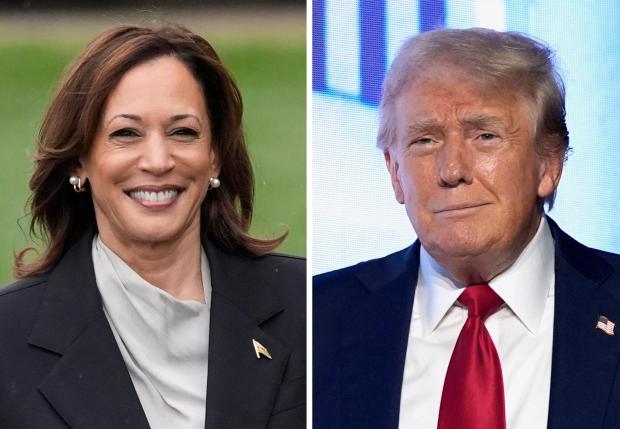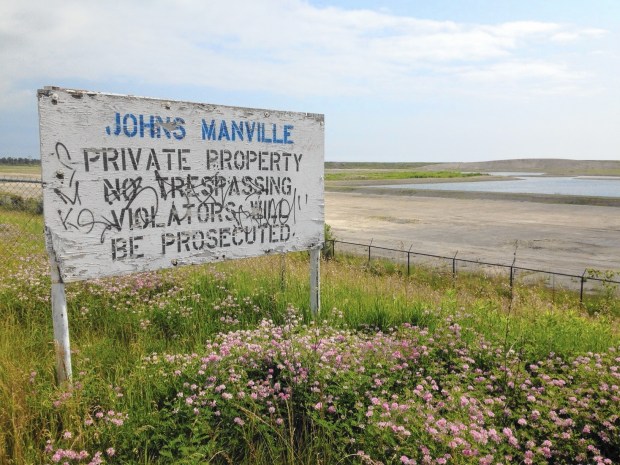Americans grumbled mightily during the closing months of the presidential election campaign about the high cost of plenty of commodities. Prices at one’s local grocery store did make a difference on Election Day.
A recent survey of 1,249 Illinois residents of all ages and undertaken on behalf of AARP, the senior citizen advocacy group, echoed the gripes of those concerned about the cost of groceries. Those polled cited the economy as the most important issue to them, a similar finding from a Gallup Poll last month, and exit polls taken after this week’s balloting.
Perhaps that’s what fueled long lines during early voting periods, where an estimated nearly 40% of Lake County’s electorate cast ballots. Or at polling places on Election Day, where lengthy waits were seen. Maybe the heavy turnout was a combination of issues, although Illinois remained solid blue surrounded by a posse of red states.
Yet in the end, it seems higher rents and grocery prices, including “shrinkflation” — charging the same price for less product — overrode all the other issues Vice President Kamala Harris and President-elect Donald Trump campaigned upon these last months.
Complaints about a poor economy, however, don’t mesh with the government’s economic data. Gas prices are down and inflation, which was at a near-50-year high, has cooled rapidly. Stock indexes are soaring, padding IRA and 401(k) accounts. Consumer spending is up.
Many economists believe food prices at checkout won’t increase or decrease dramatically in the next few years. Those around in the 1970s and ‘80s know what real inflation is. Especially in 1974, when U.S. shoppers saw food prices jumping to their highest level ever in a single year.
Illinoisans, too, may carp about higher grocery prices and rising rent costs, while saying their struggling and tightening their belts. The economic impact hasn’t kept them from the state’s growing number of gaming casinos or playing video-gaming machines at local eateries and bars.
I can attest to gamblers ignoring the economic data during a fine fall afternoon at The Temporary at Fountain Square in Waukegan. The casino was crowded, and many of the table games were packed with those watching their chips disappear quickly at the hands of blackjack dealers and roulette croupiers.
The gambling bunch that day was a diverse group, with plenty appearing to be in their golden years. My companion, a Mundelein-area resident making his first trip to The Temporary, played the video game machines.
He saw his monetary stash get lighter and lighter. Even with the losses, he said he’d be back to the casino which is ranked sixth in the state, according to the Illinois Gaming Board, in adjusted gross receipts.
The board’s September figures bear that out. Behind Rivers Casino in Des Plaines, off the Tri-State Tollway, which led all gaming venues for the month with $41.5 million in adjusted gross receipts, comes the Hard Rock Casino in Rockford, which opened in August, with $13.7 million.
After that is Bally’s Chicago, with $10.3 million; Harrah’s Joliet, $9.6 million; Grand Victoria in Elgin, $9.5 million. Just trailing the Grand Victoria is The Temporary with $9.4 million.
Not bad for a month’s business at the giant igloo-like facility. Of that, the state took a cut of nearly $2 million, according to the Gaming Board’s figures. The local share was another $537,710.
Total adjusted gross receipts in September for the 15 casinos that call Illinois home was $138.9 million, with the state taking its share of $34.7 million. Still, the state government is looking at deepening deficits for next year.
Overall, in fiscal year 2024, the state has made just over $2 billion from various types of gambling and the Illinois Lottery, a 4.8% increase over fiscal year 2023. Revenue from video gaming has steadily increased, and in 2024 it raised $848 million in state tax revenue, according to state gaming data.
Even the Lottery saw total sales grow from $3.6 billion in 2023 to $3.8 billion in 2024, earning state coffers $886 million in revenue in 2024, figures say. The casino sports books are doing quite well, also, even though one can’t place a bet on Illinois sports teams at them.
Being in a betting mood, I would wager that many of those gamblers settled behind video games or at The Temporary gaming tables last month would be among Illinoisans grousing about the cost of groceries. They also would be grumbling what the economic impact the administration of President Joe Biden has had on their lives of late as they stand in the checkout lane.
They say they are struggling, but it’s not the economy. It’s their priorities.
Charles Selle is a former News-Sun reporter, political editor and editor.
sellenews@gmail.com
X: @sellenews





